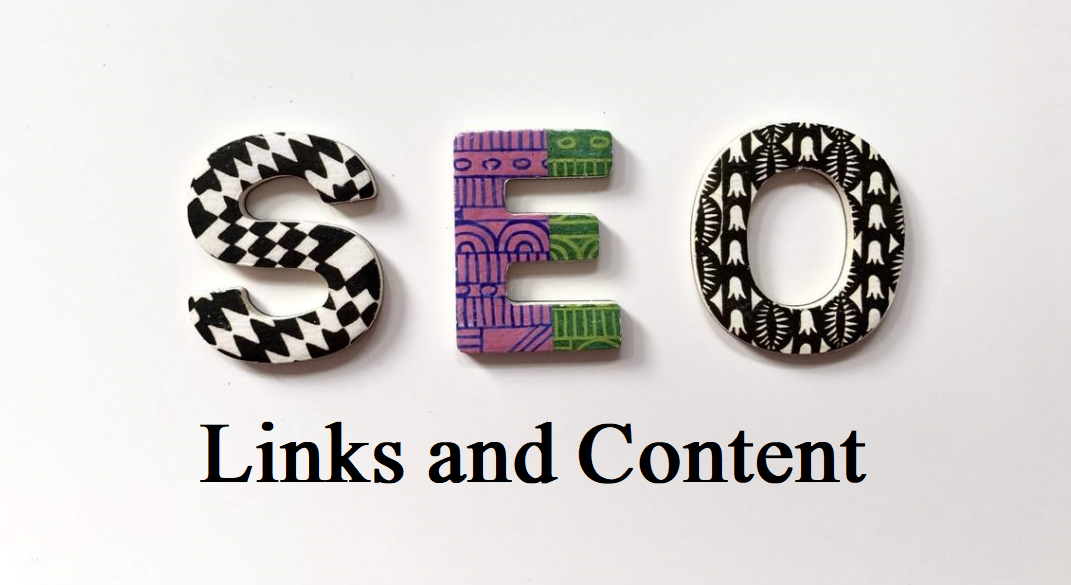SEO is a wide-ranging discipline. There are super technical SEOs, content marketers with an SEO focus, sales, and outreach SEOs, and everything in between. With the range of potential angles that a search engine optimisation professional can cover, how do we ensure that we are looking at the right kind of optimisations to improve our client’s rankings to drive organic traffic, leads, and conversions?
What Matters Most?
There is a huge volume of articles released around search each day on blogs – on Moz, SemRush, Search Engine Land… the list goes on. Each offers a niche take on SEO activities that might be important but may not be improving rankings as much as they could, were our time invested elsewhere.
So that begs the question. What are the most important tasks we can undertake for our clients and what should SEO’s be obsessing over? Are H1’s important? Is having metadata important? Is page speed important? How about SSL certificates? Certainly, all of these are going to influence our client’s rankings in some way. They can be very powerful when done right, especially in lower-competition niches where Google can often rank a page well just with some good technical updates.
But once these updates are done, continually refining them with hours of labour, or optimising the page text “just so” in line with the latest SEO blog post may not give our clients the boost they need to see a positive return on investment in their campaigns.
Links and Content
It may seem like a no-brainer, but links and content are the main drivers. Google has even admitted that these are two of the three (the last being RankBrain)
most important ranking factors. And while the ranking algorithm changes frequently, with 3
broad core updates in the last 12 months, links and content have remained at the fore of ranking signals.
From Google’s perspective, this makes sense. They want to connect users to great content that is informative, useful, and answers search intent. The algorithm uses on-page signals like the text and meta data to make these connections.
Then it utilises backlinks to ‘crowdsource’ the relative importance of this document compared to others that are competing for the same keywords. All else being equal in Google’s world, the more popular (in terms of number of backlinks) a piece of content, the more likely it’s going to rank highly.
In order to build great campaigns, the core focus of our day to day as SEO’s should be on these major areas. So why do we get stuck worrying overly-much about smaller issues?
Technical SEO isn’t Unimportant
Technical SEO goes a long way to improving the
ability of a website to rank well. Every website needs to undergo a technical audit to understand the current status of the website – both onsite ranking factors and off-site ranking factors. Looking at the base line performance and where this can be improved can resolve a lot of errors before the campaign begins. Perhaps there are 301 redirect chains or duplicate content issues preventing a page from appearing in search. These are very real issues that need to be addressed. But the list of “one-percenters” that can be undertaken at all stages in an SEO campaign can grow to be an endless one that involves minor technical updates which take away from the important activities of creating good content and winning backlinks.
Brands
can benefit from technical implementation. A large health and wellbeing B2C company made some changes to their product pages on their website in
May of 2019. This change to the JavaScript meant that Googlebot couldn’t crawl the H1 or product meta and as such these pages dropped out of the index. Year on year traffic was down significantly. They couldn’t even rank for brand name terms for their own products and lost market share to a wholesale competitor. A technical audit of the site identified this JavaScript change as being the cause and once resolved, the brand began to rebound in
July.

Large health and wellbeing B2C company, organic traffic rebound. Traffic remained flat after this, however. While technical SEO changes meant that the website recovered, traffic remained the same after it was brought back up to its expected levels. A lack of strategic content creation and link building meant no
additional traffic or ranking improvement.
The Power of Links & Content to showcase the power of links and content, consider the below traffic graph from a medium-sized wholesale bottled water provider.

In
February 2019 the newly launched brand had no organic traffic, no visibility, or brand recognition in search. Initially landing page content to outline their major products and services were set up and on-page signals like meta titles and internal linking were undertaken. A blog content strategy based around the interests of their prospective customers ensured that it could attract traffic organically and improve its market visibility. To entice users to link back to the website, a link-building strategy was employed to gain brand exposure, recognition, and domain authority as possible within their niche.
Once the initial audit was undertaken, which highlighted the lack of content pages and on-page signals 80%+ of the time dedicated to the campaign was dedicated to content optimisation and link building, sending the right PageRank signals to the right pages to capitalise on the content and link creation efforts.
The effects of this can be seen, with website traffic skyrocketing in the second half of the year and continues to improve into 2020
Focus, focus, focus!
With links and content combining to form such a powerful ranking and traffic improving force, SEO’s can benefit from auditing their own internal processes and identify what they might be focussing on that isn’t generating positive ROI for their clients.
By bringing SEO back to the two core pillars of content and backlinks, we can focus on what really matters for our clients that improve campaign performance and bring them more business.
AUTHOR Bio

Search Engine Optimisation pro, blogger, website marketing consultant, and card game enthusiast. A serial entrepreneur, Kyle Douglas has been in digital for 7+ years, and now creates and grows internal SEO teams for
digital marketing agencies.
Linkedin: https://www.linkedin.com/in/kyledouglas/
Email: kyle.douglas@revium.com.au
 Large health and wellbeing B2C company, organic traffic rebound. Traffic remained flat after this, however. While technical SEO changes meant that the website recovered, traffic remained the same after it was brought back up to its expected levels. A lack of strategic content creation and link building meant no additional traffic or ranking improvement.
The Power of Links & Content to showcase the power of links and content, consider the below traffic graph from a medium-sized wholesale bottled water provider.
Large health and wellbeing B2C company, organic traffic rebound. Traffic remained flat after this, however. While technical SEO changes meant that the website recovered, traffic remained the same after it was brought back up to its expected levels. A lack of strategic content creation and link building meant no additional traffic or ranking improvement.
The Power of Links & Content to showcase the power of links and content, consider the below traffic graph from a medium-sized wholesale bottled water provider.
 In February 2019 the newly launched brand had no organic traffic, no visibility, or brand recognition in search. Initially landing page content to outline their major products and services were set up and on-page signals like meta titles and internal linking were undertaken. A blog content strategy based around the interests of their prospective customers ensured that it could attract traffic organically and improve its market visibility. To entice users to link back to the website, a link-building strategy was employed to gain brand exposure, recognition, and domain authority as possible within their niche.
Once the initial audit was undertaken, which highlighted the lack of content pages and on-page signals 80%+ of the time dedicated to the campaign was dedicated to content optimisation and link building, sending the right PageRank signals to the right pages to capitalise on the content and link creation efforts.
The effects of this can be seen, with website traffic skyrocketing in the second half of the year and continues to improve into 2020
In February 2019 the newly launched brand had no organic traffic, no visibility, or brand recognition in search. Initially landing page content to outline their major products and services were set up and on-page signals like meta titles and internal linking were undertaken. A blog content strategy based around the interests of their prospective customers ensured that it could attract traffic organically and improve its market visibility. To entice users to link back to the website, a link-building strategy was employed to gain brand exposure, recognition, and domain authority as possible within their niche.
Once the initial audit was undertaken, which highlighted the lack of content pages and on-page signals 80%+ of the time dedicated to the campaign was dedicated to content optimisation and link building, sending the right PageRank signals to the right pages to capitalise on the content and link creation efforts.
The effects of this can be seen, with website traffic skyrocketing in the second half of the year and continues to improve into 2020
 Search Engine Optimisation pro, blogger, website marketing consultant, and card game enthusiast. A serial entrepreneur, Kyle Douglas has been in digital for 7+ years, and now creates and grows internal SEO teams for digital marketing agencies.
Linkedin: https://www.linkedin.com/in/kyledouglas/
Email: kyle.douglas@revium.com.au
Search Engine Optimisation pro, blogger, website marketing consultant, and card game enthusiast. A serial entrepreneur, Kyle Douglas has been in digital for 7+ years, and now creates and grows internal SEO teams for digital marketing agencies.
Linkedin: https://www.linkedin.com/in/kyledouglas/
Email: kyle.douglas@revium.com.au 


